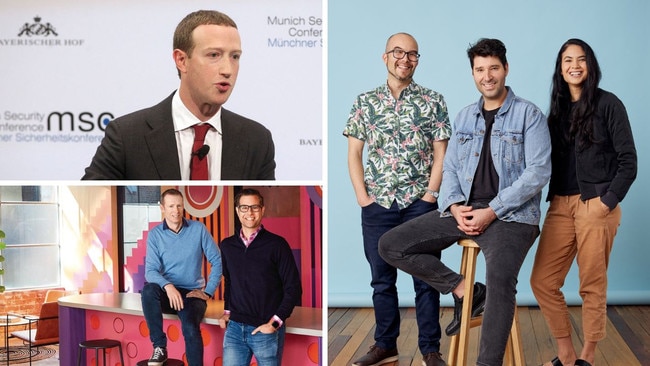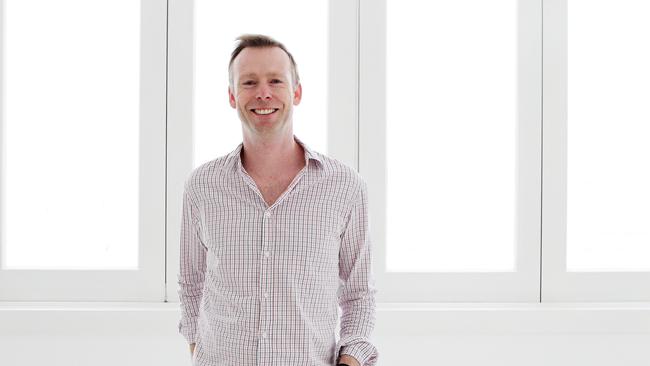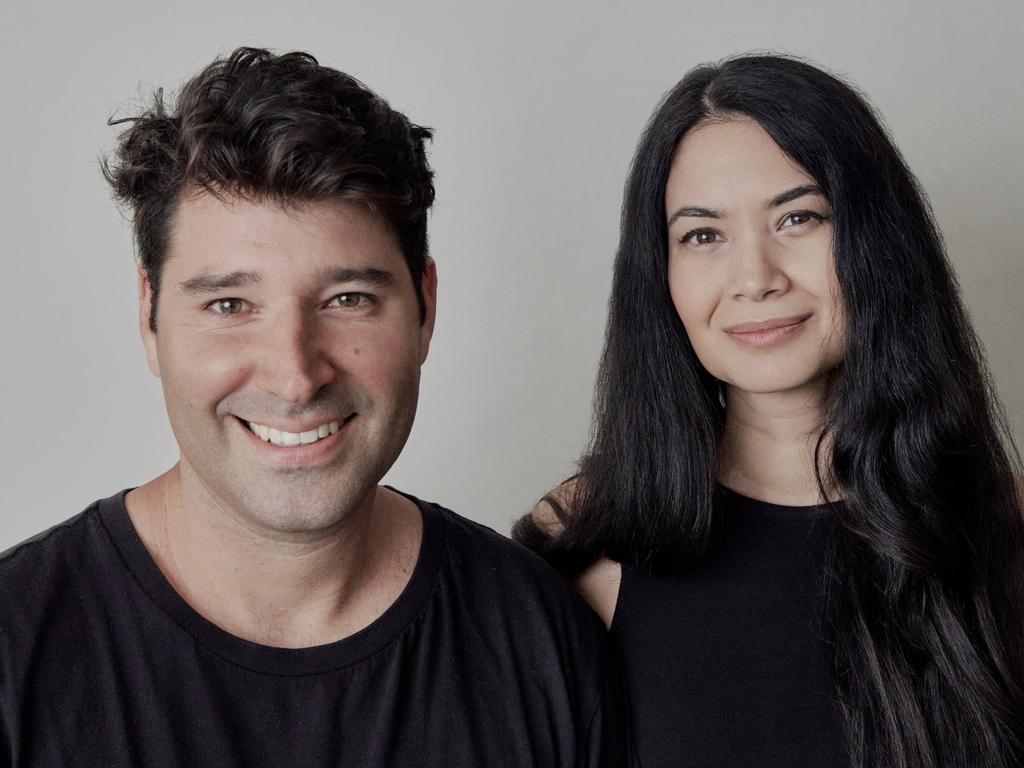Canva’s new valuation as Blackbird sells $150m stake to Coatue Management and ICONIQ Capital
Canva investor Blackbird has sold a stake in the software firm to US investors including Mark Zuckerberg and Jack Dorsey’s family office, a move its founder says brings a Nasdaq listing closer.

Canva investor Blackbird has sold some of its stake in the company to US investors including Coatue Management and ICONIQ Capital, valuing the nation’s most valuable private tech firm at $US25.5bn ($38.8bn) as it builds toward a blockbuster US public listing.
Canva’s $US25.5bn valuation is down 36.25 per cent from a peak of $US40bn in September 2021 but co-founder Cliff Obrecht described the valuation as “solid” compared to other software companies, many of whom have been forced into mass lay-offs due to the deepening tech downturn.
Blackbird’s first fund invested $3m into Canva a decade ago; that shareholding is now worth over $1bn.
The company’s valuation has seesawed over the past two years with investor T Rowe Price reportedly marking down its stake in by 68 per cent in June and Franklin Templeton also cutting its valuation by 10 per cent this year, after lifting it by 22 per cent in 2022. Blackbird’s sale of $150m in shares, which equates to about 3 per cent of its total stake, marks the first time Canva’s co-founders have publicly commented on the valuation in two years.
ICONIQ functions as a family office for the likes of Mark Zuckerberg, Sheryl Sandberg and Jack Dorsey, while Coatue Management is the hedge fund led by famed ‘Tiger Cub’ portfolio manager Philippe Laffont. Coatue and ICONIQ were joined by other US-based venture capital firms who declined to be named publicly.
“I think all things considered with most tech companies down more than 50 per cent, I think the valuation is solid,” Mr Obrecht said in an interview.
“What I think it speaks to most is the confidence investors have in Canva to grow beyond this. They’re obviously deploying large sums of money in order to see a return on that, and so it really speaks to their confidence in the business that it will continue to grow, and that trajectory will continue to accelerate.
“(The valuation) comes up in the media and no one is immune to a market drop of that significance. But it largely doesn’t impact our business, we’re continuing to hire and we continue to be really rigorous around who we hire, which we always have been, and which has led us being one of the few companies not having to do mass lay-offs and continuing to hire through this downturn.”
Nasdaq listing ‘likely’
The secondary transaction is another step towards a public listing for Canva, which Mr Obrecht said would probably be on New York’s Nasdaq, which Atlassian chose for its blockbuster IPO nearly as decade ago.

Canva’s new investors Coatue and ICONIQ have built reputations for investing in private tech start-ups and then supporting them through public listings.
“These investors are big crossover and public market investors. And so having these investors invest in us as a private company, and then essentially will continue to double down on investing in the company through an IPO and beyond,” Mr Obrecht said.
“We’re certainly at the scale where we could IPO.
“We have a bunch of big bets we’re still working on that we want to see come to fruition over the coming years before we go public, because we want those things to be proven repeatable and predictable, and that’s kind of what public markets are looking for.
“But as we grow the pressure builds and we’re not adverse to being a public company, but we’ll do it when the timing is right.”
The buying and selling of illiquid shares in privately-held tech companies, a concept known in the industry as secondaries, enables existing funds and early employees to realise returns ahead of an IPO.
Mr Obrecht said Canva, which is profitable and has been since 2017, is now bringing in more than $1.5bn in annualised revenue and is set to tick over 4000 employees this month. It has added more than 6 million paid users in the past 12 months, and racked up more new users in the last year than its first eight years combined.
The billionaire executive started Canva with wife Melanie Perkins a decade ago, and the pair recently wrapped up an 11-week overseas trip visiting their company’s US and European offices, with their 18-month old baby in tow.
In 2021 they committed to giving the vast majority of their equity, which is about 30 per cent of Canva, to charitable causes through the Canva Foundation, which is set to be one of the nation’s largest charitable organisations.
He flagged his company, which offers online design and collaboration tools, is next gearing up for a major product launch in October that would continue its work in artificial intelligence.
‘Tech and hedge fund royalty’
Blackbird co-founder Rick Baker said $US25.5bn valuation implied by the transaction was in lock-step with Blackbird’s own most recent valuation of the company. In August last year Blackbird, which is Canva’s largest investor, overhauled its valuation processes for technology companies and now has them independently valued by an external valuer at each end of each financial year.

Blackbird investors include a host of the nation’s largest superannuation funds including AustralianSuper, Hostplus, HESTA, Telstra Super, Aware Super and the Future Fund.
“It is great to see these highly respected investors join as Canva shareholders and is a huge vote of confidence in the company,” Mr Baker told The Australian.
“These are some of the best investors in the world … Tech and hedge fund royalty.
“We first invested in Canva just over 10 years ago. This sale comes from our early funds, which invested in Canva when it was just an idea in the founders’ minds. These funds are getting closer to the end of their fixed-term lives and it is time to start releasing some of the returns back to investors. While it’s a small portion of our total holding, it is a significant return of capital to our investors.”
He said Canva should now be viewed as one the best software companies in the world and a demonstration that Australia can produce huge businesses with global impact.
“We remain strong supporters of the company and are excited for the remaining 97 per cent of our funds’ shareholding to continue to grow in value,” he said.
“As we move into the liquidity phase of Blackbird’s early funds, we are delighted to be returning capital to those who backed us right in the beginning, from individuals to super funds.
“This has been a phenomenal investment, and so the sale of even a small portion of our shareholding is a great return of capital to our investors at Blackbird.”





To join the conversation, please log in. Don't have an account? Register
Join the conversation, you are commenting as Logout